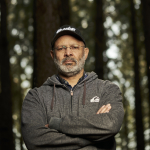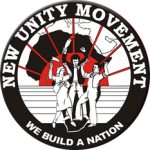
Mark Fredericks
THE LIONS ARE COMING – WITH APOLOGIES TO BAFANA BAFANA.
I rarely watch televised soccer, I much prefer the games at club and local level like those between Seagulls and Cloud 9, or Saints as played at the North End Stadium. Those games are rich in character, passion and history. I have not been to the North End Stadium in years, the drive to professionalise all sport, has killed off community spirit and the sporting rivalries that built social cohesion in the country. The National Department of Sport, Arts and Recreation lacks the imagination, knowledge and passion to rebuild sport in this country. They have bought into the apartheid ideal of exclusion and exclusivity.
The 2-0 loss to Sudan has booted South Africa out of the grand AFCON soccer spectacle even before they qualified for the tournament, thereby greatly diminishing their chances of qualifying for the FIFA World Cup in 2022. The comparisons between the hapless national soccer team and the ‘all-conquering’ springboks, flooded social media. The patriots crowed about the drubbing the British and Irish Lions will receive at the hands of the World Champion springboks, advising SAFA and Bafana to keep their notebooks handy. Without batting a historical eyelid, patriotic rugby lovers reflected on the ‘proud history’ of springbok vs British (Lions) clashes, which started 135 years ago in 1891 – though they became known as the British Lions much later.
And therein lies the burning rub. Bafana Bafana have no heritage. Bafana Bafana have no history. They are a new creation, formed out of the euphemistically termed ‘unity talks’ of 1991/2. Despite being a founder member of CAF in 1953, South African soccer was out in the cold by 1958 due to the country’s apartheid policies. Springbok rugby on the other hand, enjoyed the full support of the IRB and every single top tier rugby nation in the world. In the world of rugby, the springboks can proudly reflect on their heritage that dates back to the first international contact in 1891, and boast about their 1906 tour of the British Isles – the tour that gave the springboks their name, and gave the world the sad tale of James ‘Darkie’ Peters, a player of West Indian/Jamaican descent, who so offended the springboks, that they refused to take the field against him. Only the intervention of a high ranking politician persuaded Paul Roos and his men to take the field against Devon County.
Professional soccer in South Africa, has always been a shadow child of apartheid sport, playing the National Party game of multinationalism by playing normal sport in an abnormal society, long before Nelson Mandela and the ANC ratified the policy in the 1990s. South African soccer gave sport the face of ‘legitimacy’ by proclaiming integration despite apartheid policy. In 1982 Iwisa Kaizer Chiefs played African Wanderers in the Mainstay Cup final at Ellis Park in front of desegregated bleachers, smearing muck all over the face of the anti-apartheid sports movement. South African soccer, and especially the professional arms, never really embraced the nonracial sports movement, preferring to court the ideology of multi-nationalism – this racial gimmickry served the policies of apartheid more than it served the game of soccer. As it turned out, the game expanded its footprint, but it never grew. At the very root of it all, was of course, the money that the huge soccer crowds promised. It was a strange situation of apartheid at club level, but integration and ‘normality’ at a professional level.
Soccer in South Africa was insular during the apartheid era, and it remains insular today. The ideological inbreeding at the top level, has seen the shadows of who controls South African soccer deepen and grow more and more foreboding. South African soccer has no answers, and without a history with the worldwide controlling body, it has no future.
Rugby on the other hand has a long history with the worldwide controlling body. The South African Rugby Board enjoyed the full support of the IRB and was never expelled. Rugby tours to and from the Republic of South Africa took place throughout the apartheid era, and the IRB even sanctioned a World XV tour of the Republic of South Africa to celebrate the SARB’s centenary in 1986. World Rugby needs the springboks in order to deflect attention away from their support of the apartheid structures in rugby, and their rejection of the anti-apartheid rugby structures. In other words, the World Rugby body (IRB) those who benefitted from, and who represented racism, were preferred over those who fought racism in and through rugby.
The British Lions are now coming, and it would be interesting to see whether any of these powerful athletes will be on bended knee in deferent acknowledgement of the Black Lives Matter movement – a gesture completely devoid of any real significance when the controlling body itself sidesteps its complicity in prolonging the life of apartheid. Of course, there are those who are overjoyed at this prospect, because of the so-called benefits to the country. Well, this country has hosted the 1995 IRB Rugby World Cup, the 2003 ICC Cricket World Cup and the 2010 FIFA Soccer World Cup, and the benefits have yet to trickle down to the township sports structures.
With the popular social myth that soccer is the ‘black man’s game’, and ‘rugby is the white man’s game’ an almost immutable part of South African folklore, the very visible act of ‘civilising the black man’ comes through the new missionary project of rugby ‘transformation’. The British and Irish Lions will face a springbok team led by one of the new missionary project’s successes – Siya Kolisi. The success of the springboks at the 2019 World Cup in Japan has managed to blot out the dire situation in the country, and the tour of the British Lions will further obscure the view of the South African reality.
The springboks represent the facade of national success, while behind the facade you will find the reality of a failed state, ably represented by Bafana Bafana.
There can be no normal sport in an abnormal society.
Mark Fredericks
20210331

